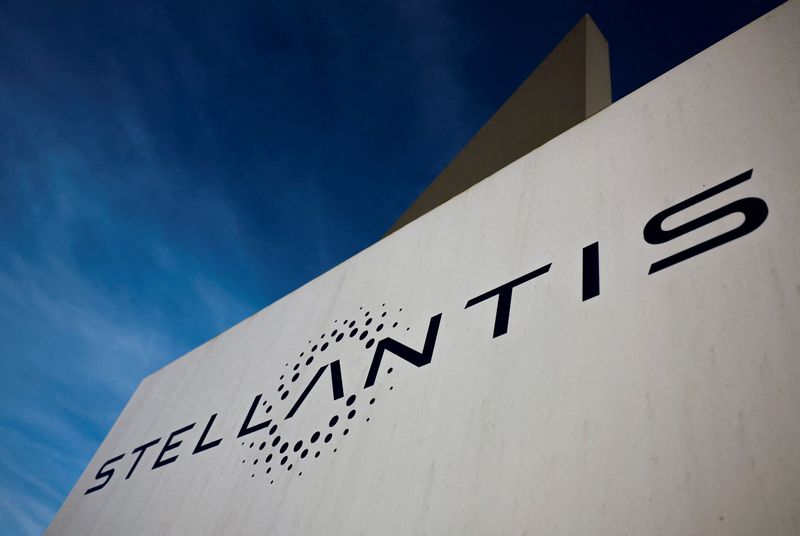By David Shepardson
(Reuters) -Chrysler parent Stellantis (NYSE:STLA) paid $190.7 million in civil penalties for failing to meet U.S. fuel economy requirements for 2019 and 2020, and owes another $459.7 million in outstanding penalties, government documents seen by Reuters show.
The penalties, paid in March and May, were disclosed by the National Highway Traffic Safety Administration (NHTSA), which administers the Corporate Average Fuel Economy program, on a government website. The disclosure shows the significant compliance costs to meet U.S. fuel rules even as automakers are spending billions of dollars to build electric vehicles.
Stellantis, which also owns Fiat, Peugeot (OTC:PUGOY) and other brands, said the penalties were incurred before it was created in 2021. Stellantis said the penalties are "not indicative of the company’s direction," saying that it is investing more than 50 billion euros ($54.39 billion) worldwide to produce EVs, including two dozen U.S. market EVs by 2030.
The automaker and the NHTSA on Friday both confirmed Reuters' calculation of the outstanding penalties.
The Italian-American automaker in 2023 paid a record-setting $235.5 million for the 2018 and 2019 model years in fuel economy penalties and $156.6 million in penalties for the 2016 and 2017 model years.
In March 2022, the NHTSA reinstated a sharp increase in penalties for automakers whose vehicles do not meet fuel efficiency requirements for 2019 and beyond, nearly tripling the penalties.

Last year, the NHTSA said its proposal to hike fuel economy standards through 2032 would cost the industry $14 billion in projected fines over a five-year-period, including $6.5 billion for General Motors (NYSE:GM), $3 billion for Stellantis and $1 billion for Ford Motor (NYSE:F). But under the rules finalized last month, the auto industry is collectively expected to face a total of $1.83 billion in fines from 2027 through 2031 -- and it could be as little as nothing, the NHTSA said.
($1 = 0.9194 euros)